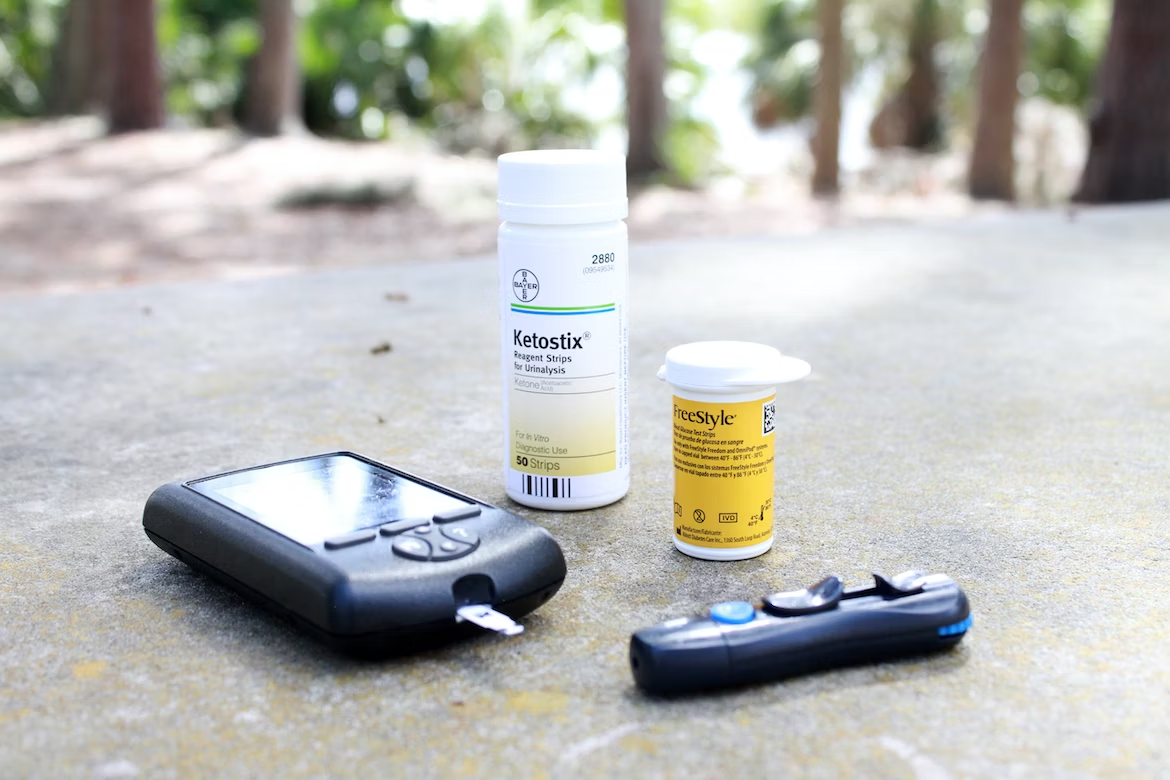
Living with diabetes requires diligent self-care and management, and having the right tools and supplies at home is crucial for effective diabetes management. In this blog post, we will discuss the eight essential items that every diabetic should have at home. From blood glucose monitoring devices to emergency supplies and diabetes-friendly snacks, these items will empower individuals to take control of their health and maintain optimal diabetes management.
1. Diabetic foot garments
Diabetic foot garments play a crucial role in foot care for individuals with diabetes, especially those who suffer from neuropathy. Neuropathy is a condition characterized by nerve damage, which can cause numbness, tingling, and pain in the feet. Wearing specialized diabetic foot garments, such as diabetic socks or shoes, can help alleviate discomfort and reduce the risk of foot-related complications. Additionally, by using neuropathy nerve pain cream, individuals can further manage the symptoms associated with neuropathy, providing relief from pain and discomfort. Incorporating these garments and topical treatments into a comprehensive foot care routine is essential for maintaining foot health and preventing complications in individuals with diabetes.
2. Test Strips and Lancets
Test strips and lancets are essential tools for individuals with diabetes to monitor their blood glucose levels. Test strips are used to collect a small blood sample, while lancets are used to obtain the sample for testing. These supplies enable accurate and convenient glucose monitoring at home. It is important to have an adequate supply of test strips and lancets to ensure regular monitoring and to track changes in blood sugar levels. Proper disposal of used test strips and lancets is crucial to maintain a safe and clean environment.
By consistently using these tools, individuals can stay informed about their blood glucose levels and make informed decisions regarding their diabetes management.
3. Glucose Meter Control Solution
Glucose meter control solution is a vital component in diabetes management. It is a liquid solution used to verify the accuracy of blood glucose meter readings. By comparing the results obtained from the control solution with the expected range provided by the manufacturer, individuals can ensure that their glucose meter is providing accurate and reliable readings. Regular use of a control solution helps identify any potential issues or discrepancies in the meter’s performance, ensuring confidence in the accuracy of blood glucose measurements. By incorporating glucose meter control solution into their testing routine, individuals can maintain better control of their diabetes and make informed decisions based on accurate blood glucose readings.
4. Insulin and Insulin Delivery Devices
For individuals with type 1 diabetes or type 2 diabetes on insulin therapy, having an adequate supply of insulin and insulin delivery devices is crucial. Insulin is a hormone that helps regulate blood sugar levels. It is crucial to have an adequate supply of insulin and proper storage to maintain its effectiveness. Insulin delivery devices, such as insulin pens, syringes, or insulin pumps, enable precise and convenient administration of insulin as prescribed by healthcare professionals. Proper usage, handling, and disposal of these devices are essential for effective insulin delivery.
By ensuring access to insulin and utilizing appropriate delivery devices, individuals with diabetes can effectively manage their blood sugar levels and maintain optimal health. Regular communication with healthcare providers is important to determine the right insulin regimen and make necessary adjustments for better diabetes management.
5. Ketone Testing Supplies
Ketone testing is essential for individuals with diabetes, especially those with type 1 diabetes. Ketones are produced when the body lacks sufficient insulin to process glucose, and their presence can indicate a potentially dangerous condition called ketoacidosis. Ketone testing supplies include urine ketone test strips or blood ketone meters, which allow individuals to monitor ketone levels accurately. Regular testing is important during times of illness, high blood sugar levels, or when symptoms of ketoacidosis are present. By utilizing ketone testing supplies, individuals can detect and address ketone buildup promptly, ensuring proper diabetes management and minimizing the risk of complications.
6. Emergency Supplies
Emergency supplies are vital for individuals with diabetes to be prepared for unexpected situations. Hypoglycemia (low blood sugar) or hyperglycemia (high blood sugar) can occur, and having the necessary supplies at hand is crucial. Emergency supplies may include glucagon kits, which can be used to treat severe hypoglycemia when the person is unable to consume carbohydrates. Fast-acting carbohydrates, such as glucose tablets or fruit juice, should also be readily available to quickly raise blood sugar levels.
Creating an emergency action plan that outlines the steps to take during an emergency and sharing it with family members or close contacts is essential for prompt and appropriate response. Being prepared with emergency supplies can help manage critical situations and safeguard the well-being of individuals with diabetes.
7. Diabetes-Friendly Snacks and Beverages
Diabetes-friendly snacks and beverages are essential for maintaining a balanced and healthy diet for individuals with diabetes. Choosing the right snacks and beverages can help regulate blood sugar levels and prevent spikes or drops. Diabetes-friendly snacks include fresh fruits, nuts, low-sugar granola bars, or sugar-free yogurt, which provide essential nutrients without causing significant blood sugar fluctuations. Opting for sugar-free or low-sugar beverages like water, unsweetened tea, or diet soda can help avoid excess sugar intake. These choices contribute to better blood sugar control and support overall health. Incorporating diabetes-friendly snacks and beverages into meal planning ensures that individuals with diabetes can enjoy satisfying and nourishing options while managing their condition effectively.
8. Contact Information and Medical Records
Contact information and medical records play a critical role in diabetes management. Maintaining an up-to-date list of emergency contacts, including healthcare providers and close family members, ensures that individuals with diabetes can quickly reach out for assistance during a crisis. Additionally, having access to important medical records such as previous lab results, prescriptions, or allergy information is invaluable for healthcare professionals when providing accurate and appropriate care.
Storing this information in a convenient and organized manner, such as through secure electronic health record systems or smartphone apps, allows for easy retrieval and sharing of vital medical information. By prioritizing contact information and medical records, individuals with diabetes can ensure prompt and efficient communication with healthcare professionals and receive the best possible care.

Having the right tools and supplies at home is vital for effective diabetes management. From blood glucose monitoring devices to emergency supplies and diabetes-friendly snacks, these essential items empower individuals to take control of their health. By ensuring regular monitoring of blood glucose levels, proper medication management, and preparedness for emergencies, individuals with diabetes can lead healthy and fulfilling lives while effectively managing their condition. Remember, always consult with healthcare professionals for personalized guidance and support in managing diabetes at home.







